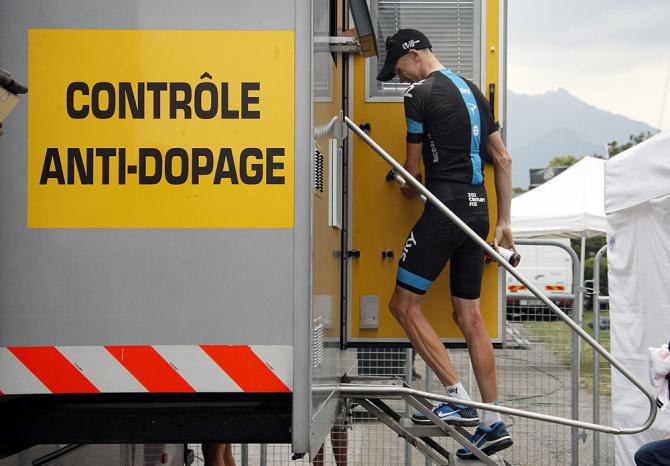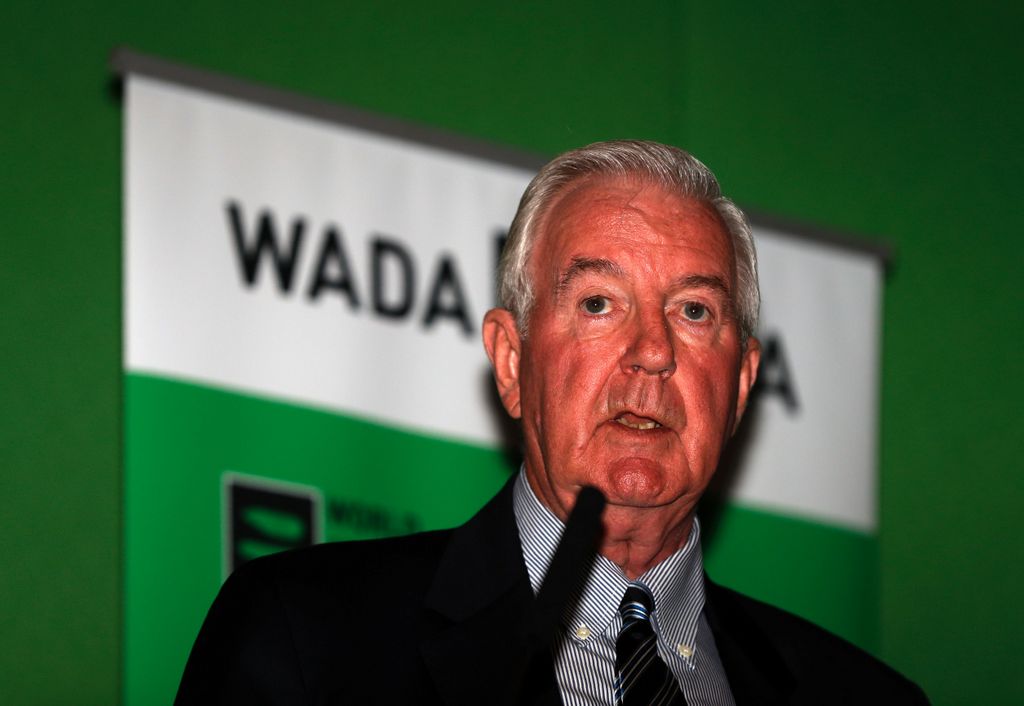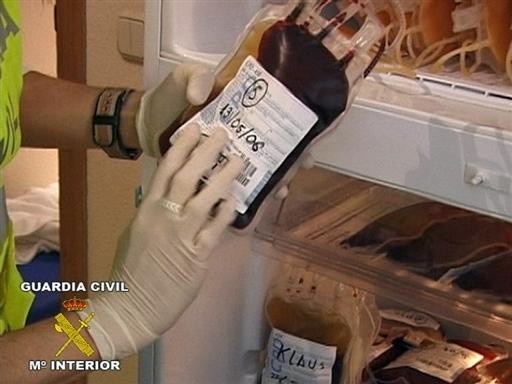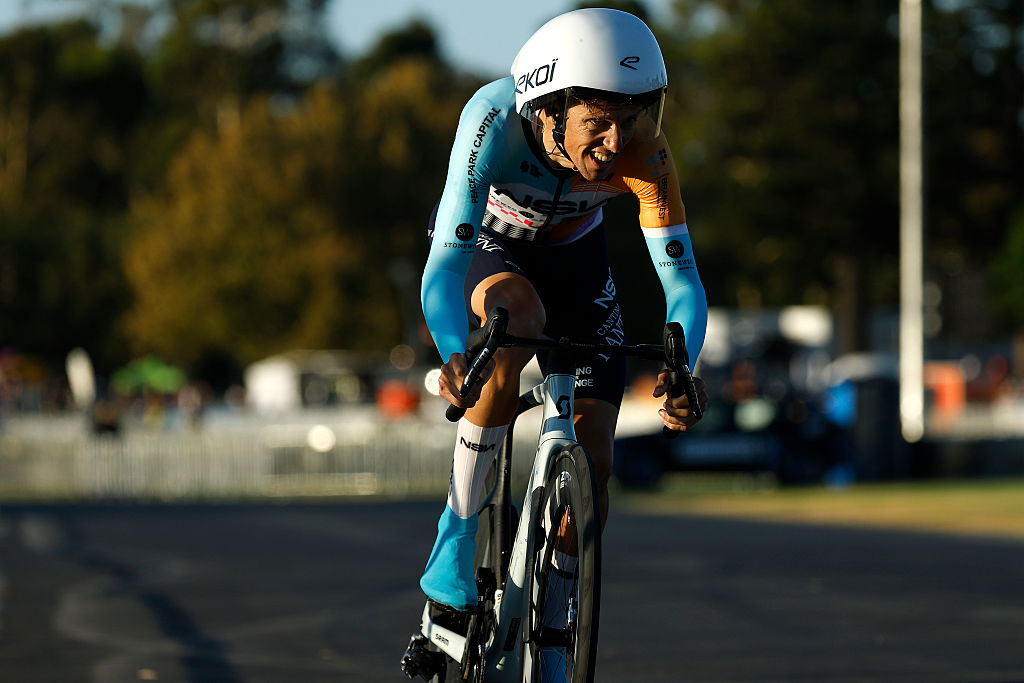MPCC slams WADA over Chris Froome case, tramadol, Operacion Puerto
Voluntary group calls for WADA president's resignation in open letter
The latest race content, interviews, features, reviews and expert buying guides, direct to your inbox!
You are now subscribed
Your newsletter sign-up was successful





The Movement for Credible Cycling (MPCC) has issued a scathing attack on the WADA, writing an open letter that criticises the World Anti Doping Agency over its handling of the Chris Froome case, tramadol, Operación Puerto, and the Russian doping scandal. The letter calls for the resignation of the WADA's President, Craig Reedie.
The MPCC, a voluntary association of cycling teams who sign up for anti-doping regulations that surpass those of the UCI - which follow the WADA code - met for its general assembly this week and the theme was one of frustration and dissatisfaction with the way anti-doping is being operated.
The open letter is especially strong on Froome's salbutamol case. The four-time Tour de France champion returned an adverse analytical finding for the asthma drug during the 2017 Vuelta a España, which he won, but the case was dropped on the eve of the 2018 Tour de France. Despite nearly double the permitted level of salbutamol in his urine, Froome insists he did not surpass the permitted dosages and, given it's a 'specified' substance on WADA's banned list, he was not provisionally suspended and continued to race 'sub-judice' in 2018, winning the Giro d'Italia.
The MPCC complains of inconsistencies in WADA's handling of the case, highlighting that the onus was not on the authorities to prove wrongdoing but on Froome to prove his innocence, chiefly through a pharmacokinetic study, which was never carried out.
"MPCC laments the way sanctions are not applied equally and procedures are not followed equally, which is devastating for the credibility of the sport, for WADA itself, and thus is devastating for the confidence which athletes ought to have in the world's anti-doping agency and its independence and integrity," reads the letter.
"The World Anti-Doping Code states that it 'is not consistent with therapeutic use of the substance and will be considered as an Adverse Analytical Finding (AAF) unless the Athlete proves, through a controlled pharmacokinetic study, that the abnormal result was the consequence of a therapeutic dose (by inhalation) up to the maximum dose indicated above'. Though, in the press release following its decision, WADA admits that a CPKS would not have been practicable.
"The handling of Chris Froome's case showed clearly how WADA was in contradiction with its own rules. Disrepute was brought upon the fight against doping, hurting cycling in a big way and spread confusion among the public and only achieved one thing: fuelling suspicion around a case that was already at the centre of the media attention."
The latest race content, interviews, features, reviews and expert buying guides, direct to your inbox!
Puerto, Russia, and tramadol
The MPCC also brought up Operación Puerto, the doping scandal that broke in 2006 when Spanish police seized more than 200 blood bags in a raid on the premises of disgraced doctor Eufamiano Feuntes, many of them belonging to pro cyclists.
Puerto has been back in the headlines in recent weeks after Alejandro Valverde, who was banned for two years between 2010 and 2012 after being matched to a blood bag, became world champion, and after it emerged that the bags could be handed over to the Italian Olympic Committee - the body who effectively brought down Valverde - for identification, with many of Fuentes' clients still unknown.
Taking aim at the WADA code, the MPCC labelled Puerto "a debacle".
"Since its creation in 2004, the World Anti-Doping Code has been aiming at the standardization of the anti-doping rules and sanction across all sports and all countries in the world. As of today, more than 660 sport organization commit to the Code. Nevertheless, MPCC is not satisfied with how the Code is executed depending of the sports. The whereabouts rules, for example, are not applied in the same way for all the sports: collective sports, especially, benefit from a specific treatment as they can only be controlled during collective trainings, and not on an individual level, out of these slots. We already highlighted a differential treatment about the Puerto Case since 2006. WADA failed in how it handled this case: MPCC regards this as a debacle for the World Anti-Doping Agency."
WADA has faced widespread criticism of late for its recent decision to reinstate the Russian Anti-Doping Agency (RUSADA), and the MPCC duly joined the fray. RUSADA was suspended in 2015 as evidence emerged of state-sponsored doping programmes in Russia, and the decision to reinstate led various figures in sport to question whether WADA was fit for purpose.
"This reinstatement relied upon two conditions: the acceptance of the conclusions of the McLaren Report on the reality of institutional doping on the one hand, and granting access to Moscow's anti-doping labs on the other," the MPCC wrote. "These two conditions have not been met."
The MPCC also repeated its complaints that tramadol is still not a banned substance. There are various accounts that the painkiller can enhance performance - and also increase the likelihood of crashes - and last year it was detected in 4.4 per cent of samples taken from pro cyclists. Tramadol has been on WADA's 'monitoring list' since 2012 but will remain legal in 2019, though the UCI has pledged to veer from the WADA code and ban its use in cycling from January.
"MPCC laments the lack of evolution of the List of Prohibited Substances and Methods year after year, and the update for 2019 is nothing more than the confirmation of this trend," it said.
The open letter concludes with a series of scathing statements:
"MPCC refuses to be complicit in WADA's dubious decisions.

